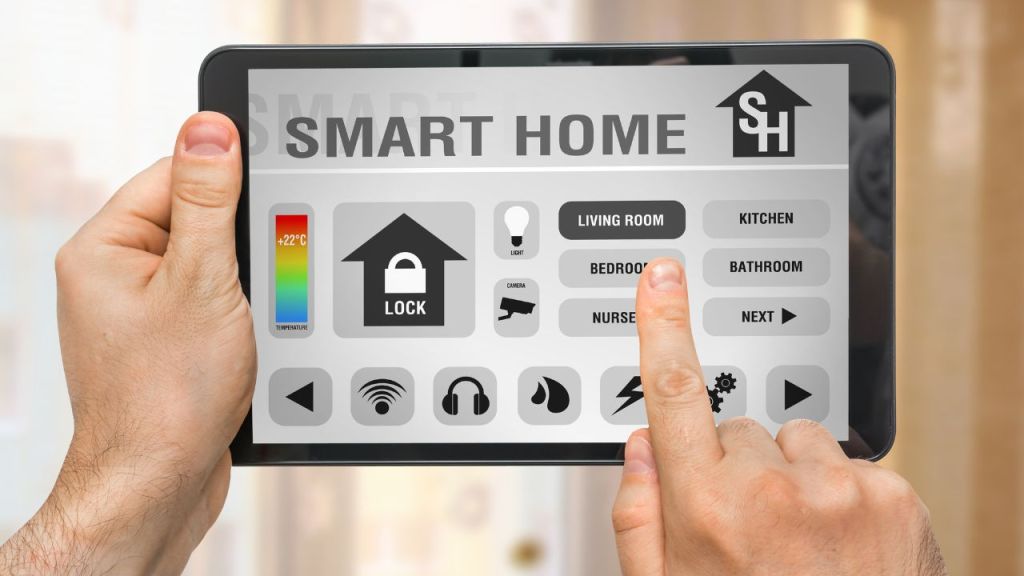Parenting is a straight-up rollercoaster. There are emotional ups and downs, sacrifices made, and challenges to overcome. So implementing a green parenting lifestyle might seem daunting–especially when you already have so much to juggle.
But as the world becomes more conscious of its eco-footprint, adopting a more eco-friendly outlook might actually simplify some things and do the planet a favor in the process.
In reality, promoting unsustainable practices within your home negatively affects the environment and your family’s overall well-being. Fostering poor air quality and exposure or toxins in your home can negate efforts toward your family’s overall wellness. Excessive household waste also has significant impacts, ultimately contributing to pollution, climate change, and the loss of biodiversity.
Therefore, green parenting is more important than ever. So, what can you do as a parent to contribute to a more sustainable future?
Let’s dive in and explore how you can make a difference and raise eco-conscious kids at the same time!
What Is Green Parenting?
Green parenting is a parenting philosophy that emphasizes environmental stewardship, sustainability, and mindfulness in daily life. It entails making conscious decisions to reduce your family’s environmental impact and instilling environmentally friendly habits and behaviors in your children.
Green parenting practices include reducing waste, using eco-friendly products, conserving energy, eating sustainably, and supporting environmentally friendly policies and initiatives.

Going Green Before Your Baby Arrives
Embarking on the journey of green parenting begins with making conscious, eco-friendly choices even before your baby arrives. Planning ahead and creating a sustainable environment for your little one can set the foundation for raising an environmentally responsible child.
Incorporating sustainability into pre-birth preparations also involves choosing items that make an eventual transition to green living smoother. Here are a few tips to consider when preparing for your eco-conscious baby.
- Research Diaper Services: If the idea of using cloth diapers seems overwhelming or difficult for your lifestyle, consider researching a diaper service. Dyper.com is a great eco-friendly option. Some cities offer diaper composting, which can help reduce the waste piling up in landfills.
- Premake Reusable Cloth Wipes: Instead of stocking up on disposable baby wipes, consider making reusable cloth wipes. You can easily create your own by using soft flannel fabric or purchasing a set from eco-friendly retailers.
- Learn How To Make Baby Food: Instead of buying packaged baby food, consider researching how to make your own using locally sourced fruits and vegetables. You can even harvest from your own garden–it doesn’t get more locally sourced than that!
- Make Reusable Food Pouches: Once baby comes, you’ll be busy caring for them with little time to put your crafting hat on. So prepare for their arrival by making your own reusable food pouches! You can fill them with homemade baby food and wash them for repeated use–reducing waste and saving money.

11 Ways To Jump Start Your Green Parenting Lifestyle
Embarking on an eco-friendly lifestyle with your children can be a rewarding and fulfilling experience. Let’s look at 10 ways to embrace green parenting and instill sustainable values in your growing children.
1. Create a “Green” Baby Registry
Creating a green baby registry is an excellent way for you to introduce environmentally conscious choices into your parenting journey from the beginning.
You can curate a list of baby essentials that are made with sustainable materials, ethically produced, and designed to reduce waste.
In addition to choosing green products, consider adding items that promote a low-waste lifestyle, such as reusable cloth diapers and wipes or wooden toys free of toxic paints.
PRO TIP: Prioritize experiences rather than asking for material possessions. For instance, ask for baby classes in lieu of traditional gifts.
Be sure to share your green parenting goals with friends and loved ones who will be shopping from your registry so they can understand the importance you place on raising an eco-conscious child.
2. Choose Eco-Friendly or Reusable Diapers
One of the most effective ways to be a green parent is by choosing reusable diapers. Disposable diaper waste takes an average of 500 years to decompose, causing harm to the environment and wildlife.
Reusable cloth diapers are a great replacement option as they can be washed and reused repeatedly, reducing waste significantly.
You can select from various types of reusable diapers, such as pre-folds, flats, or all-in-one styles, making it easy for you to choose what works best for your family’s needs.
Using reusable diapers also saves money in the long run compared to constantly buying disposable ones.
PRO TIP: Install a diaper sprayer on your toilet to rinse solid waste off the diaper. This makes cleaning easier and reduces the amount of water needed for washing.

3. Make Your Own Baby Food
Making your own baby food is one of the easiest and most effective ways to embrace green parenting. By doing so, you reduce the amount of waste that comes from store-bought jars and maintain control over what ingredients go into your child’s meals.
Making your own baby food doesn’t have to be time-consuming or complicated.
Here’s a quick rundown of the process:
- Step 1 – Choose Fresh and Organic Produce: Choosing fresh and organic fruits and vegetables will ensure your baby gets the most nutrients from their food.
- Step 2 – Wash & Prepare: Wash your produce thoroughly and remove any skins, seeds, or pits.
- Step 3 – Cook: Cook your produce by boiling, steaming, or baking. Cooking methods will vary depending on what fruit or vegetable you use.
- Step 4 – Puree: Puree the cooked produce using a food processor, blender, or hand blender until the consistency is smooth.
- Step 5 – Storage: Store your baby food in an airtight container and refrigerate for up to 3 days. You can also freeze the baby food in ice cube trays and transfer the cubes to a freezer-safe container for longer storage.
PRO TIP: Start with single-ingredient purees and gradually introduce new flavors and textures. When introducing new foods to your baby, be cautious of potential allergens, such as nuts and dairy.
Homemade baby food is healthier for your little one because it contains no preservatives or additives often found in store-bought options. Plus, it’s actually more affordable in the long run!
4. Look For “Hand-Me-Down” Clothing
Instead of buying new clothes whenever your child outgrows their wardrobe, consider swapping clothes with friends or family or shopping at consignment stores.
When looking for hand-me-downs, it’s important to inspect the items carefully to ensure they are in good condition and safe for your child to wear. Look for stains, holes, loose buttons or snaps, and other signs of wear and tear.
You will likely find that using hand-me-downs allows you to dress your children in stylish, high-quality clothing without breaking the bank.
5. Avoid Driving When Possible
As your further embrace your green parenting lifestyle, finding ways to reduce your carbon footprint is essential. An effective way you can do this is by avoiding driving whenever possible.
Opt for walking or biking instead of using the car for short journeys, as it can help you reduce fuel and emissions.
Instead of driving, you could also consider taking public transportation. Many cities have family-friendly public transportation options that make it simple to get around with children. Plus, taking the kids on a train or bus ride can be a fun adventure.
PRO TIP: If you need to drive, consider carpooling with other families or friends to reduce the number of cars on the road. This can also be a fun way for kids to socialize and make new friends.
Adopting these eco-friendly practices in your daily routine reduces your family’s environmental impact and sets a great example for your children.
6. Add Houseplants To Your Home
Add a touch of greenery to your home by incorporating houseplants into your decor. Not only do they add aesthetic value, but they also have numerous health and environmental benefits.
Studies have shown that plants can reduce stress levels and improve mental health, which is especially important for new parents who may experience anxiety or sleep deprivation.
Some great starter plants include spider plants, peace lilies, and succulents. These are all low-maintenance options that require little water or sunlight.
7. Borrow Your Maternity Clothing
A great way to save money and reduce waste when starting your green parenting journey is to borrow maternity clothes from friends or family members.
Borrowing maternity clothes reduces the demand to manufacture new ones, ultimately reducing textile waste. Textile waste contributes significantly to environmental pollution, and minimizing it aids in conserving natural resources.
But borrowing maternity clothes has benefits beyond just saving money and reducing waste. Engaging in this practice helps build community among parents, as you’ll have the opportunity to connect with others who have been in your shoes before.
PRO TIP: Look for a local borrowing network or an online group where you can meet other moms willing to lend maternity clothes. You can also inquire with local charities, thrift stores, or consignment shops about borrowing or renting maternity clothes.
8. Choose Eco-Friendly Kid’s Products
As a green parent, choosing eco-friendly products for your kids is important. Plenty of sustainable options are available from toys and clothes to bedding and bath products.
When shopping for children’s items, look for products made from organic or natural materials such as cotton or bamboo.
You could also consider buying secondhand toys or clothing from thrift stores or consignment shops to reduce waste and save money. Avoiding plastic toys containing harmful chemicals like BPA or phthalates is essential to a green parenting lifestyle.
When bath time rolls around, choose natural and biodegradable products that don’t harm the environment. Wooden toys are an excellent choice because they are naturally biodegradable and sustainably sourced. Look for bath toys such as wooden boats, puzzles, and blocks.
9. Breastfeed If Possible
Breastfeeding is one of the easiest and most eco-friendly ways to start your green parenting journey. You naturally produce breast milk as a mother, so you don’t have to rely on a processed baby formula that comes in cans or plastic containers.
Breastfeeding also helps reduce greenhouse gas emissions since breastfed babies require fewer resources than formula-fed babies. Some studies show that infant formula’s overall negative environmental impact was 35% to 72% higher than feeding babies with natural breast milk.
It’s important to note that breastfeeding may not always be possible for every mother or child due to health reasons or personal preferences. If you cannot produce enough of your own breast milk for your baby, see if you can uncover a milk-sharing community in your area.
Community milk sharing involves connecting with other mothers who are willing to donate breastmilk. This can be done through social media groups or local organizations. However, it is important to ensure the milk is screened and pasteurized before using it to reduce the risk of transmitting infections.
PRO TIP: Search for milk banks in your community. Milk banks are facilities that collect, screen, and process donated breastmilk to provide it to babies in need. These facilities usually have strict criteria for donors and use pasteurization to ensure that the milk is safe for consumption.

10. Use Green Cleaning Products for the Mess
Get your eco-friendly habits in order with green cleaning products. Traditional cleaning products can contain hazardous chemicals that are not only bad for the environment but also harmful to your family’s health.
For instance, vinegar is an all-purpose cleaner that works effectively on countertops, floors, walls, and many other surfaces without leaving behind toxic residues. Baking soda is another natural cleaner well suited for removing dirt and grime from sinks, tubs, tiles, and more.
PRO TIP: Incorporating essential oils into your homemade cleaning products adds a pleasant scent to your cleaning process while providing additional benefits. Tea tree oil, for example, is a natural disinfectant; lavender oil is soothing and can help with stress.
11. Use Your Imagination and Embrace Crafting
Crafting is a great way to entertain kids while teaching them the importance of recycling and reusing materials. By embracing crafting, you can reduce waste by turning old objects into new toys or decorations for your home.
For example, empty toilet paper rolls can be used as building blocks or transformed into cute animal figurines with some paint and glue.
Crafting can also be a fun bonding experience for you and your child. It provides an opportunity to spend quality time together while creating something beautiful and useful out of everyday items that might otherwise end up in the trash.
Simple Low-Waste Swaps For New Parents
As a new parent, you may find yourself drowning in an ocean of disposable products that seem to pile up daily. However, there are simple low-waste swaps to become a more eco-friendly family.
- Use Your Regular Food Processor: Instead of buying a separate baby food processor for purees, use your regular food processor. It not only saves money but reduces the amount of equipment that ends up cluttering your kitchen.
- Use Free and Clear Laundry Detergents: You don’t need special baby detergent for your little one’s laundry. Free and clear detergent is just as gentle on their skin and better for the environment. Plus, you can use it for the whole family!
- Use a Standard Dish Drying Rack: An electric bottle dryer may seem convenient, but using a regular drying rack is just as effective and requires zero energy to operate.

How Can You Parent Sustainably As Your Children Grow?
Green parenting doesn’t stop when your child outgrows their baby years. As they grow, it’s important to continue instilling eco-friendly habits and values in them.
The most important thing you can do is set a good example. Here are a few ways to incorporate eco-friendliness into your evolving green parenting lifestyle.
- Develop a Habit of Upcycling: Consider upcycling old clothes and fabric instead of throwing them away. You can recycle old t-shirts into reusable shopping bags or old sheets into reusable cloth napkins.
- Create a Family Composting System: Set up a composting system in your backyard or on your balcony, and get your kids involved. Teach them about composting and encourage them to assist you in composting food scraps and other organic waste.
- Support Local Farmers: Instead of large chain grocery stores, make a visit to your local farmers and farmers’ markets. This helps local businesses while lowering the carbon footprint associated with transportation and packaging.
- Reduce Your Food Waste: This can certainly be a challenge with little ones, but take a shot at it! Try to plan meals ahead of time and only buy what you need to reduce food waste. You can also encourage your children to eat leftovers and use up all food before it goes bad.
- Start a Carpooling Group: The kids need to get to school, but why not join forces with others in your community? You’ll reduce emissions and saves money on gas in the process!
Teaching your children about sustainability doesn’t have to be a laborious chore. Making a few simple changes can go a long way!
How Will You Embrace a Green Parenting Lifestyle?
Being a green parent and raising eco-conscious children is important not only for the health of our planet but also for our children’s future.
We can teach our children the importance of being environmentally conscious and inspire them to make a positive impact on the planet by making sustainable choices in our daily lives.
From choosing eco-friendly products and reducing waste to supporting local farmers and using natural cleaning products, there are countless ways to raise eco-conscious children.
We can create a better world for our children and future generations by taking small, intentional steps toward a greener future.
So let’s be green parents and raise the next generation of eco-conscious citizens who will be committed to making the world a healthier and more sustainable place for all.
How do you embrace green parenting in your daily life? We’d love to hear about your experience in the comments below!






Leave a comment